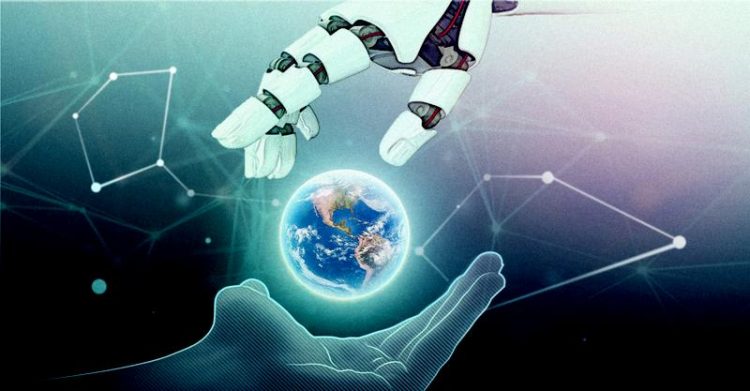New Cluster of Excellence “Centre for Tactile Internet with Human-in-the-Loop” (CeTI)

CeTI TU Dresden
At the Cluster of Excellence CeTI, scientists from the fields of electrical engineering, communication technology, computer science, psychology, neuroscience and medicine are working together with researchers from TU Munich, the German Aerospace Center, the Fraunhofer-Gesellschaft, as well as international scientific institutions, to pursue this goal.
They take an interdisciplinary approach to investigating key areas of human control in the cooperation between man and machine, software and hardware design, sensor and actuator technologies and communication networks. The research forms the basis for novel applications in medicine, industry (Industry 4.0, co-working) and the ‘Internet of Skills’ (education, rehabilitation).
The success of digitalisation continues resolutely, while devices and processes become ever more interconnected. In the foreseeable future, our daily lives will be shaped by robotic support. The scientists in the Cluster of Excellence CeTI at TU Dresden want to actively influence this transition, thereby establishing Dresden as a recognised research hub in this promising field of the future.
“Now that the internet has fundamentally changed our access to information, the next step will be for the Tactile Internet to enable more people to participate equally in society and to acquire skills — regardless of age, physical limitations, cultural background, etc. To achieve this, functional interaction between man and machine is essential,” explains Professor Frank Fitzek, spokesperson for the Cluster of Excellence.
So-called intelligent and adaptive systems are crucial for successful, real-time communication. They are not bound to a particular device and can adapt to changing environments.
To ensure success in this endeavour, CeTI will pursue unique and interdisciplinary research with six central goals.
1. The development of an intelligent network, which links people by continually adapting and learning, and furthermore guarantees a hardly noticeable time delay while being highly reliable
2. The transfer of psychological and medical insights from the human learning process to machines
3. The creation of extensions for the human mind and body using novel sensor and actuator technologies
4. The development of haptic coding schemes to cope with the deluge of information stemming from the large number of sensors
5. The design of flexible, fast and reconfigurable electronics
6. The transfer of new developments to applications in robot-assisted medicine, in cooperations between man and machine, and in the field of innovative teaching and learning
CeTI creates an international, open and flexible environment, in order to educate the next generation of exceptional researchers and to bolster their careers. Through facilitating this technology transfer, CeTI will accompany this fundamental technological change, whilst taking into account the associated social questions in the development process.
Wissenschaftliche Ansprechpartner:
Prof. Frank Fitzek
Sprecher des Exzellenzclusters CeTI
Tel.: +49 351 463-33945
E-Mail: frank.fitzek@tu-dresden.de
Media Contact
All latest news from the category: Interdisciplinary Research
News and developments from the field of interdisciplinary research.
Among other topics, you can find stimulating reports and articles related to microsystems, emotions research, futures research and stratospheric research.
Newest articles

Self-Destructing Cancer Cells: Cutting-Edge RNA Breakthrough
Jülich scientists use novel RNA technology to selectively switch off tumours in the brain. An Adaptable Platform Technology That Destroys Glioblastoma Cancer Cells Using a special RNA molecule, a team…

Endurance Training: Transforming Lives of Heart Failure Patients
Can strength and endurance training be beneficial for patients with a certain form of heart failure? A research team from Greifswald investigated this question together with seven other research centers…

A Wake-Up Call for Mediterranean Shark Protection Against Extinction
Overfishing, illegal fishing and increasing marketing of shark meat pose significant threats to the more than 80 species of sharks and rays that inhabit the Mediterranean Sea, according to a…



